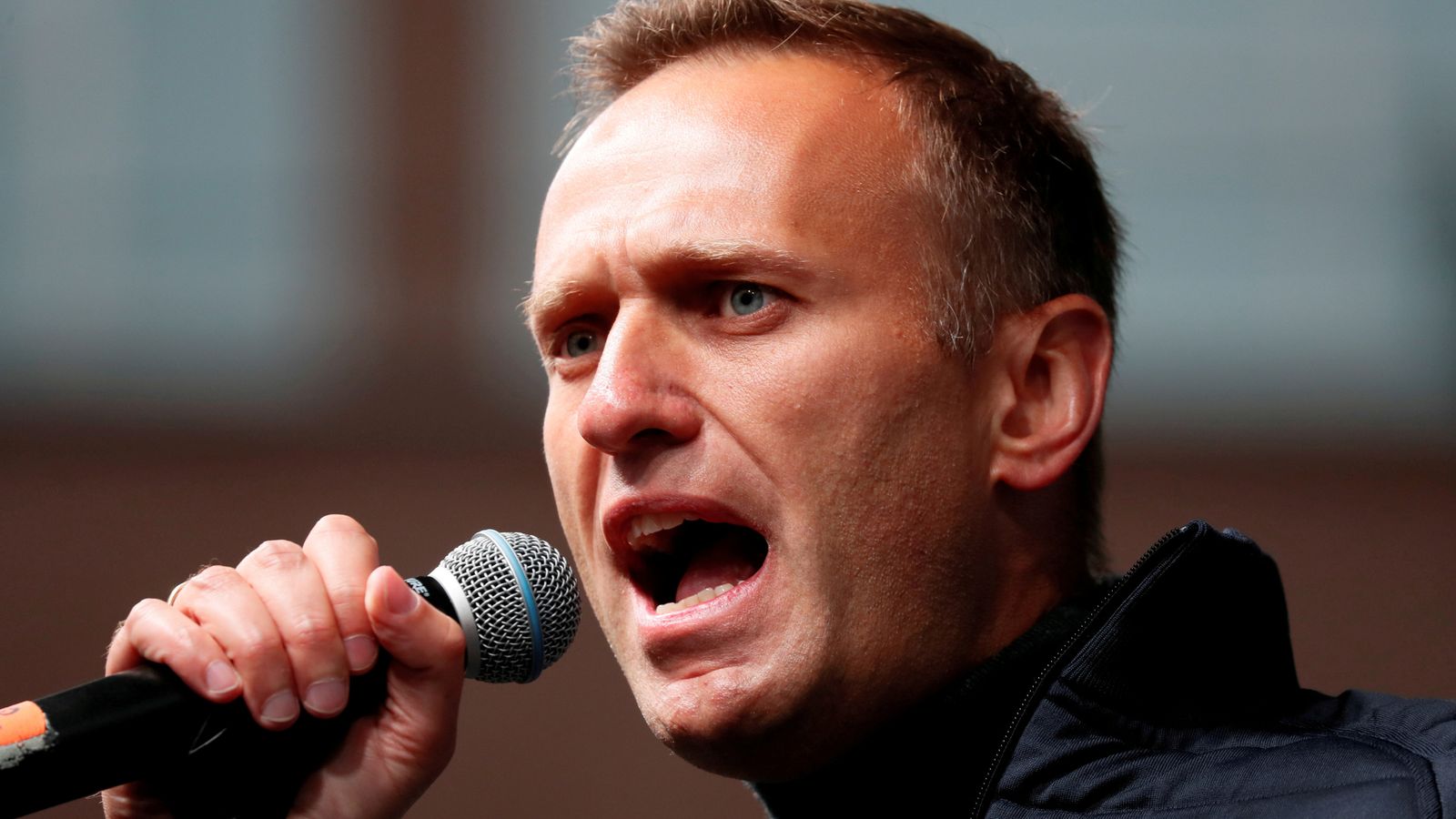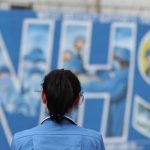Seven members of the Russian security services have been hit with sanctions by the UK following the poisoning of Alexei Navalny with a nerve agent.
One year ago today, Mr Navalny – a Russian opposition leader and fierce critic of President Vladimir Putin – fell ill on a flight to Moscow and was subsequently found to have been poisoned with novichok.
The 45-year-old has since been jailed in Russia over parole violations for a 2014 embezzlement conviction.
Please use Chrome browser for a more accessible video player
The foreign office said those members of Russia’s Federal Security Service (FSB) sanctioned with asset freezes and travel bans on Friday were “directly responsible for planning or carrying out” the poisoning of Mr Navalny.
It is the second batch of sanctions to be imposed by the UK over the attack on Mr Navalny.
In October last year, six officials and one state agency were sanctioned after being accused of masterminding the plot.
Announcing the fresh sanctions on Friday, Foreign Secretary Dominic Raab said: “Since the horrific poisoning of Alexei Navalny took place a year ago, the UK has been at the forefront of the international response against this appalling act.
“Through our chemical weapons sanctions regime and at the Organisation for the Prohibition of Chemical Weapons, we are sending a clear message that any use of chemical weapons by the Russian state violates international law, and a transparent criminal investigation must be held.
“We urge Russia to declare its full stock of novichok nerve agents.”
Please use Chrome browser for a more accessible video player
Novichok is the same nerve agent that was used in the Salisbury poisonings in 2018, for which the Russian intelligence services were also found culpable.
The UK and US – who have also introduced fresh sanctions on those deemed responsible for the attack – released a joint statement on the anniversary of Mr Navalny’s poisoning, in which they reaffirmed their “condemnation of the assassination attempt”.
“We regret that the Russian authorities have failed to investigate and credibly explain the use of a chemical weapon against Mr Navalny on Russia’s territory, in light of Russia’s obligations as a state party to the Chemical Weapons Convention,” the statement said.
“We reiterate our interest in stable and predictable relations with Russia, on the basis of full compliance with and implementation of international obligations and commitments.”
After being poisoned last year, Mr Navalny was flown from Russia to Germany to recover.
But he was arrested and detained on 17 January this year when he returned to Russia, where he was subsequently given a jail sentence of two years and eight months.
In April, Mr Navalny ended a 24-day hunger strike.
Mr Raab recently accused the Russian authorities of a “Kafka-esque” attack on those standing up against corruption, after groups linked to Mr Navalny were banned by a court.






















